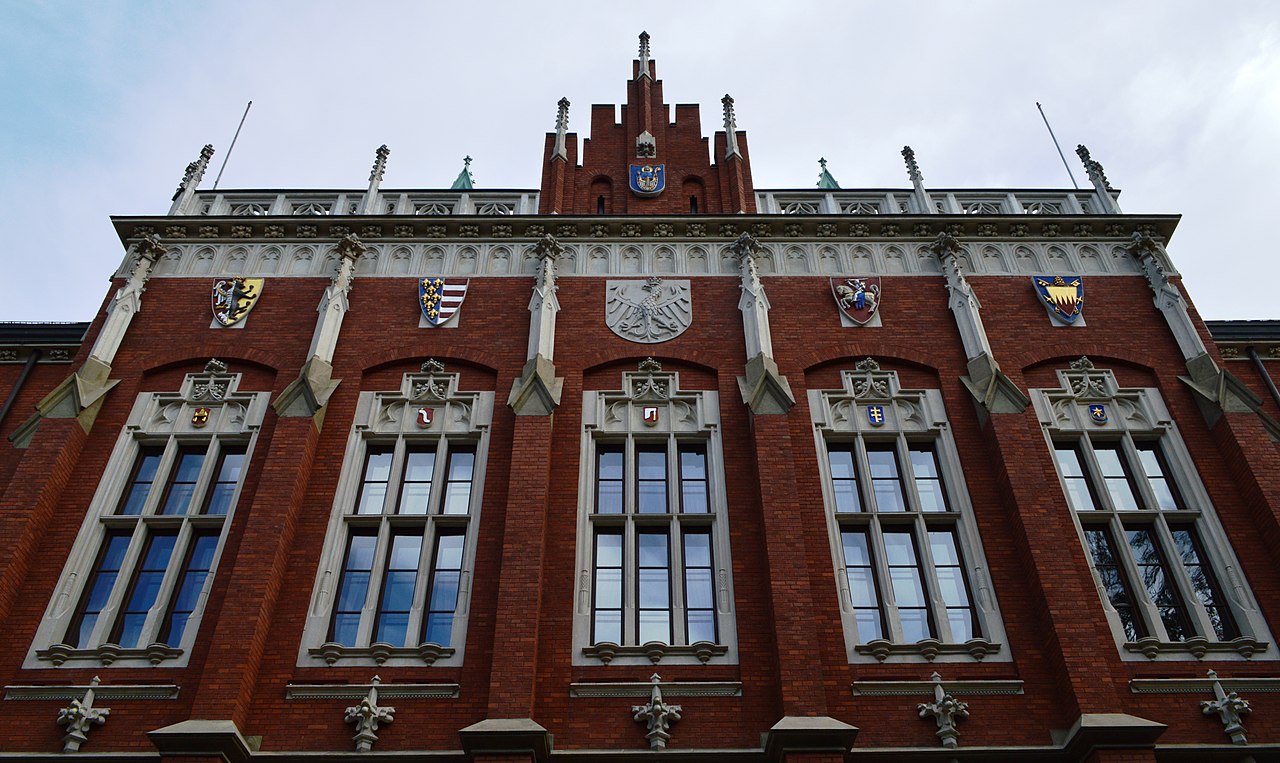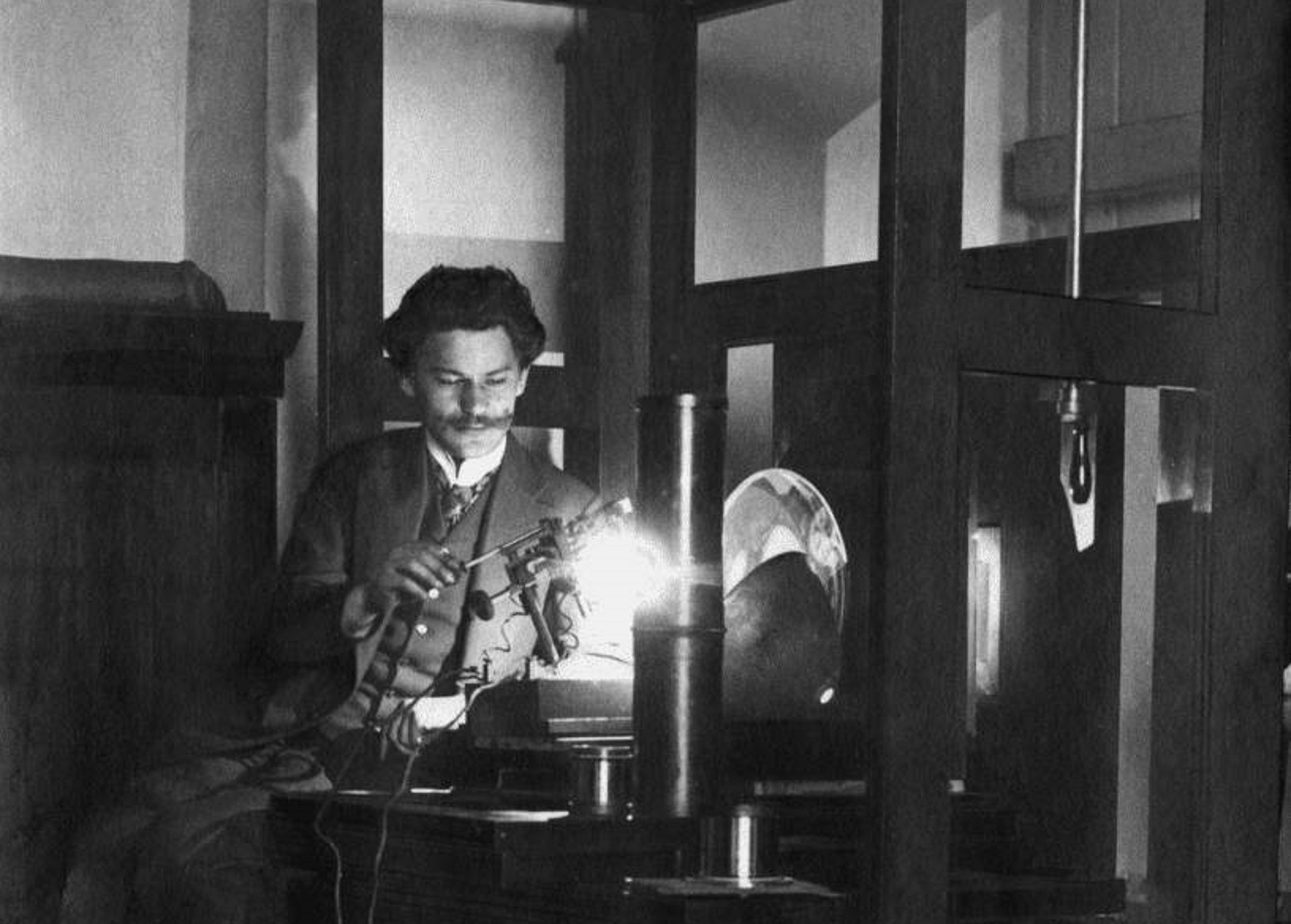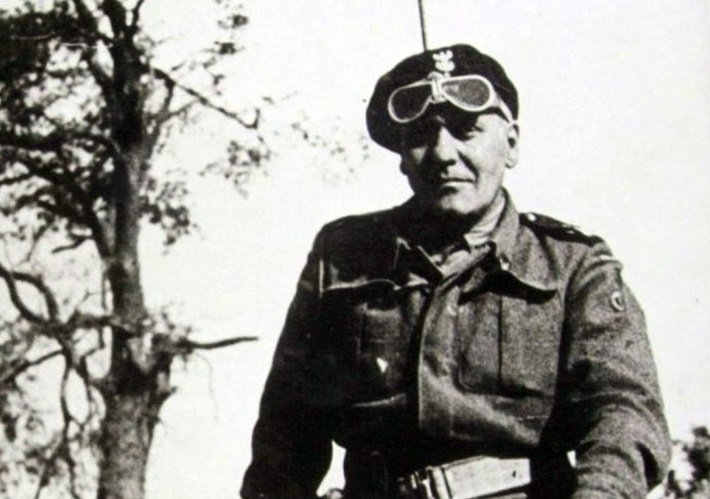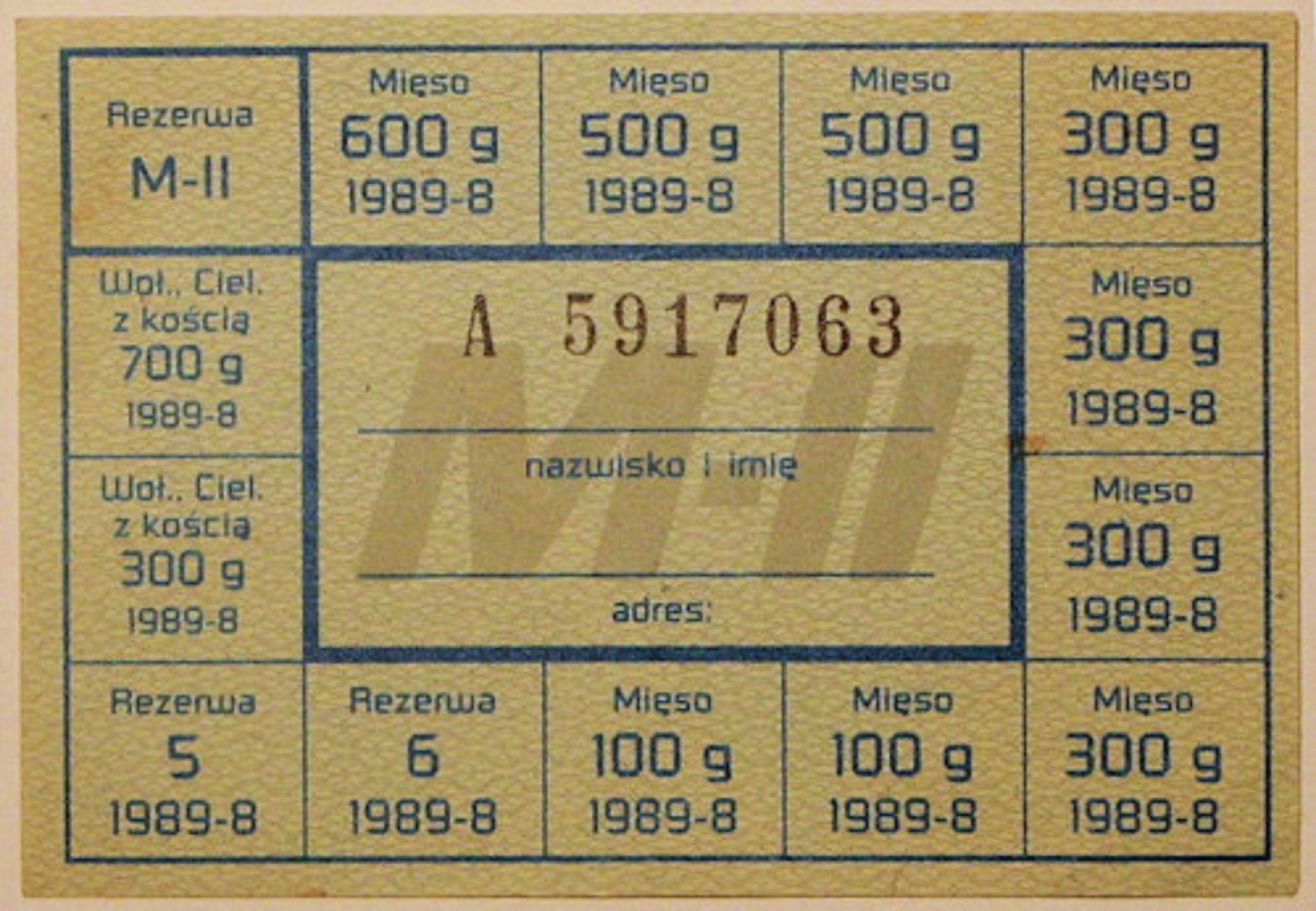Roman Ingarden’s life path is easier to present than his intellectual achievements […]. From the beginning, he set himself very ambitious goals: he intended to combine his interests with studying mathematics, physics and biology, in order to reach the essence of reality.
by Wojciech Stanisławski
Polish philosopher Roman Ingarden, who died half a century ago on 14 June 1970, was a calm, elegant academic beyond any reproach. A graduate of Göttingen, a student of Husserl, he lived almost a 19th-century lifestyle. Ingarden translated Immanuel Kant mostly to amuse himself, but also to make important ontological considerations available to Polish students. His most important work, better known for its title than for its content, is the three-volume Controversy over the Existence of the World. After three millennia of general reflection and philosophical disputes in world history, Ingarden decided to return to the original question (and astonishment) of archaic Greek thinkers: what does it mean to “be”? He dealt with it, however, in a different, more complex way than the ancient sages.
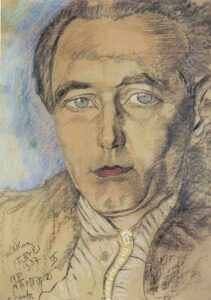
Ingarden is often referred to as “the most famous Polish phenomenologist”, usually without any true comprehension of the term. The fact that there is a multitude of various “phenomenologies”, including the one we find in Hegel’s fundamental work, does not help either. Ingarden’s phenomenology is undoubtedly clearer – which does not mean that it is simpler. He took seriously the assumption of understanding reality as something that is directly given. His philosophical cognition was to be based on “non-assumption”, the rejection of all sorts of guesses, theses, speculation and suppositions. Ingarden and his students often referred to the concept introduced by Husserl: to “epoché”, that is, “to examine things as they are”, to eliminate (with great intellectual effort) as many assumptions as possible about how phenomena present themselves in the world.
This sounds difficult to people who are not professional philosophers. And probably it would be even more difficult to understand the works of Roman Ingarden, were it not for the clarity and discipline of the argument. Professor of the Jagiellonian University Maria Gołaszewska, a former student of Ingarden, is the author of a legendary obituary: “Thus his attachment to precision comes from the style of his work, those tedious preliminary inquiries that are probably boring for an unacquainted reader, they won’t satisfy those with a natural tendency to seek definitive solutions in a scientific work either (…). But anyone who does theoretical research himself and knows well how long is the path from a question to some preliminary conclusions – may have a taste of the uneasy way of excluding answers.”
And indeed: the very first pages of the Controversy over the Existence of the World are a good sample of what an ambitious reader finds next: “INTRODUCTION. Chapter I. Preliminary Reflections. § 1. Introduction”. After a further ten pages we reach “§ 2. The Presuppositions of the Controversy and its Provisional Formulation”.
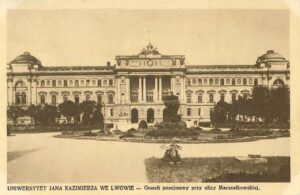
And although the quotations above sound rather serious, Ingarden’s philosophical writing did not resemble the severe and dry nature of legal codes. After becoming accustomed to the phenomenologist’s method and rhetoric, many readers – not just philosophers – discovered it was possible to see the world in a fresh and free way. It is no coincidence that Ingarden’s best-known students, sometimes “fighting for” the right to attend his seminars, included various thinkers (some of them well-known indeed) such as Maria Gołaszewska, mentioned above, but also Danuta Gierulanka, Irena Krońska, Jan Woleński, Władysław Stróżewski, Tadeusz Kroński, Józef Tischner and Karol Wojtyła. In fact, many students came to his classes who did not follow the royal path of philosophy, but years later, as writers or researchers, they remembered how Ingarden “shaped their thinking”.
Roman Ingarden’s life path is easier to present than his intellectual achievements. The first half of his life was orderly and stable, similar to the lives of thousands of academics; it changed unexpectedly due to 20th-century history. As the son of an outstanding engineer, designer and main constructor of Krakow’s waterworks system, Ingarden spent his childhood partly in Krakow, and partly in Lwow, the capital of Galicia at that time. Musically talented (attending violin class at the conservatory) and a young poet, he decided to study philosophy. From the beginning, he set himself very ambitious goals: he intended to combine his interests with studying mathematics, physics and biology, in order to reach the essence of reality.

He began this scientific journey in Lwow under the direction of Kazimierz Twardowski, the famous founder of the Warsaw school of logic. Soon, however, Ingarden distanced himself from the school. With the consent of his father (and Twardowski’s advice), he set off – first to Vienna, then to Göttingen (there he tasted higher mathematics under the direction of David Hilbert), and finally to Freiburg im Breisgau, where he met the most important thinker and master, Edmund Husserl. At this seminar, he would also make important friendships, including with Edith Stein, a later nun and saint. It was from Husserl that he would learn the maxim: “intellectual life at your own risk”. Under Husserl’s guidance he would write a doctoral dissertation on Bergson’s intuition. It was in the shadow of the walls of Freiburg that he would survive the Great War.
He would always remain deeply rooted in German culture, language and thought. He did not postpone publishing his Controversy Over the Existence of the World and the treatise The Cognition of the Literary Work of Art in Germany, but wrote it again in German. He spoke in German whenever he was nervous. „When Ingarden heard the word ‘równokształtny’ (‘equiformed’)” – as Prof. Woleński remembered the polemics with Ingarden running the seminar, “he took off the ring from his finger, began to hit it on the table and said ‘Das ist Warschauer Schule’”. In this anecdote, one can hear the temperament with which Ingarden engaged in polemics with “neopositivists” after the war – but also Friborg’s style. “It was said that he thought in German, then translated it into Polish in his head”, noted someone maliciously about Ingarden. This is not really true. But he did translate from German, he chose the most difficult works: after the war he translated Critique of Pure Reason by Immanuel Kant, and before the war – the work most important for him, apart from Husserl, Max Scheler’s On the tragic and On the Rehabilitation of Virtue.

He returned to Poland when it regained independence. In 1919. he married Doctor Maria Pol in Warsaw. The family grew, and as many young scholars of that time he was forced to combine academic work with earning a living as a teacher. From Lublin to Toruń, he taught philosophy, German language and mathematics in high schools. In 1924, he defended his postdoctoral dissertation at the Jan Kazimierz University in Lwow (Essential Questions) and began lecturing there, but he was not able to give up his work in high schools until the mid-1930s. Then he would also be recognized internationally. At the VIII International Philosophical Congress in Prague in 1934, he presented a critique of the neopositivist assumptions of the theory of knowledge.
Rooted in Lwow, he shared its people’s fate. He experienced the first Soviet (1939-1941), German, and then Soviet (1944-1945) occupation in the city of Lwow. He kept the experience of both to himself, only after years at the seminar in Krakow he noticed with some humor: “You know, I remember how Prof. Ajdukiewicz, wishing to keep up with the times in Lwow in 1939 began an analysis of Lenin’s book Materialism and Empirio-criticism with his students. And because he did it just as he used to do with any philosophical work, in a week he became an assistant professor at the Medical Faculty and began teaching physics…”.
Ingarden did not intend to “keep up with the times.” Under Soviet occupation, at the Jan Kazimierz University renamed Ivan Franko University, he was teaching the history of German literature, under German occupation, in turn, he was teaching mathematics in the Technical School for Poles – the only legal educational institution while the Third Reich ruled out the possibility of conducting secondary and higher education for Poles. At the same time, he participated in underground education, examined high school graduates – and at night he kept writing his Controversy over the Existence of the World. In the autumn of 1944, he assisted in the evacuation of children, orphans of the Volyn slaughter, to a modest sanatorium in Pieskowa Skała; in February 1945 he moved to Krakow.
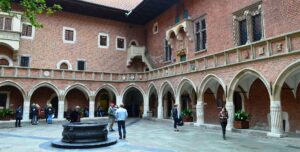
There, a year later, he headed the II Department of Philosophy of the Jagiellonian University, where he received the title of professor. 1945-1948 were extremely fertile in his philosophical life: he published the first two volumes of Controversy… and Sketches on the Philosophy of Literature. He kept traveling, joined the Polish Academy of Arts and Sciences (and was awarded by the Academy in 1947), edited the philosophical journal “Kwartalnik Filozoficzny”. For some time he hesitated whether he should stay at the Jagiellonian University or Wrocław University. After Poland was forced to change the borders as a result of conferences in Yalta and Potsdam, and Lwow found itself within the borders of the USSR, the majority of the Polish inhabitants of the city went to Wrocław, including Ingarden’s friends and acquaintances. However, these hesitations and all his activities ended with the arrival of Stalinism. In 1950, he was removed from the university. With only his wife’s medical salary and his modest income, he found the energy and time to write the third part of Controversy over the Existence of the World and to translate Kant.
He returned to the Jagiellonian University only after Stalin’s death and the – relative! – liberalization in the People’s Republic of Poland in 1956. This was the time of harvest: he published works that he had kept in a drawer, received from the Communist authorities, during the so-called “thaw” in 1957, the Order of Polonia Restituta, set off on lecture tours, and his works were translated. Finally, he was accepted as the member of the most serious foreign philosophical associations (the American Aesthetic Society, Société Française de l’Esthétique Internationale, Phenomenological Society), but on a daily basis he was participating at the meetings of the Committee on the History of Literature of the Polish Academy of Sciences, the Polish Philosophical Society and the Association of Art Historians. The breadth of the horizon of his interests is evidenced by his participation in discussions at the sessions of the Polish Mathematical Society as well as the Mental Health Association. Considering perception disorders as an epistemologist, he visited psychiatric clinics in Krakow, and engaged with the then leading Polish psychiatrist Antoni Kępiński.
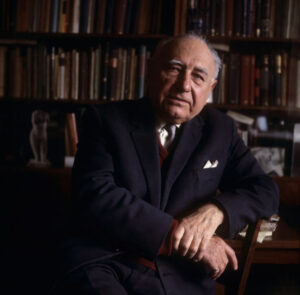
The authorities’ grace did not last long. In 1962, the Polish United Workers’ Party’s University Committee at the Jagiellonian University recognized that “there are two tasks facing the party organization: the liquidation of the idealistic philosophy, whose leader is Prof. Ingarden, and the stabilization and development of the Marxist philosophy” (this quote comes from documents researched by Ryszard Terlecki, the author of the monograph on the Jagiellonian University after 1945). Thus it was stabilized and liquidated. A year later, Roman Ingarden was forced to retire early. This did not stop him from writing. He also received the most important award from the Polish political emigration (the A. Jurzykowski Foundation Award in New York, 1966) and the prestigious Gottfried von Herder Preis (1968). He died, as already mentioned, in 1970.
He was a passionate philosopher – and he worked constantly. „Another meeting took place on the train from Warsaw to Krakow. When I got into the dining car, I saw Ingarden sitting with Wolter [Prof. Władysław Wolter of Jagiellonian University, and criminal lawyer – editor’s note]. (…) Ingarden invited me to sit down. (…) I was a witness of how both professors discussed negative states of things. Ingarden rejected it, which Wolter was in favor of because of his theory that omission is not causal,” recalled Jan Woleński. One needs to know the unfortunate condition of Polish railways in the 1960s to understand that this discussion of negative states of things, held at a wobbly table, over a plate of herring of “second freshness”, on a stained tablecloth, was – despite Roman Ingarden’s great fidelity to phenomenology – also evidence of his stoicism.
Author: Wojciech Stanisławski
Translation: Alicja Rose & Jessica Sirotin

